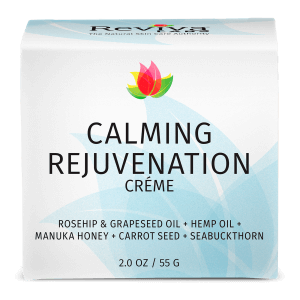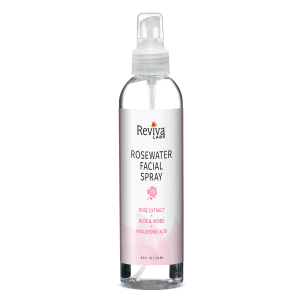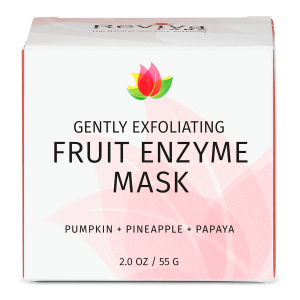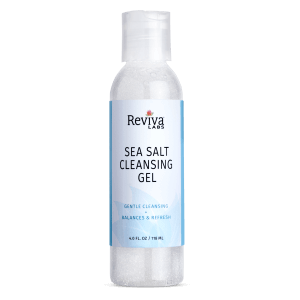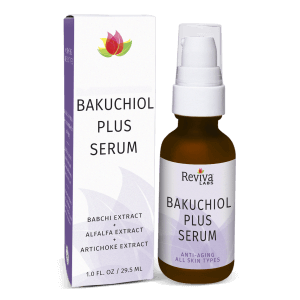Clean Beauty, Natural, Reviva Labs, Skin Care
What is Eczema and How Can I Tell if it’s Just Dry Skin?
Eczema is a common skin condition that affects people of all ages, often causing discomfort and distress. It’s characterized by dry, itchy, and inflamed skin, but it’s important to recognize that not all dry skin is eczema. Understanding the differences between these conditions is essential for effective treatment and management.
Understanding Eczema
Eczema, also known as atopic dermatitis, is more than just dry skin. It’s a chronic condition that can vary in severity and location on the body. The most common symptoms include intense itching, red or brownish-gray patches, small, raised bumps, and thickened, cracked, or scaly skin. Eczema is often accompanied by a heightened sensitivity to irritants and allergens, which can exacerbate the condition.
Unlike simple dry skin, eczema often presents a cycle of itching and scratching that can lead to skin infections if the skin barrier is broken. The exact cause of eczema is not fully understood, but it’s believed to be linked to a combination of genetic and environmental factors. People with eczema often have a family history of the condition or other allergic conditions like hay fever or asthma. Triggers for eczema can include stress, harsh soaps or detergents, certain fabrics like wool or synthetic fibers, and changes in weather.
Distinguishing Eczema from Dry Skin
While both eczema and dry skin cause skin dryness and irritation, there are key differences. Dry skin is usually a temporary condition caused by external factors like weather, hot showers, or harsh skincare products. It typically presents as flaky, rough skin that feels tight and may look dull. Dry skin often resolves with the use of moisturizers and by avoiding skin irritants.
Eczema, on the other hand, is a more persistent condition and its symptoms are usually more severe than those of dry skin. The intense itching associated with eczema is a significant indicator, often leading to a cycle of scratching that aggravates the skin further. Eczema patches are also more likely to be inflamed and red, and they can ooze or bleed in severe cases.
Managing Eczema
Managing eczema involves both skincare routines and lifestyle changes. Keeping the skin moisturized is crucial. Using a gentle, fragrance-free moisturizer can help to restore the skin barrier and reduce dryness and itching. It’s important to apply moisturizer immediately after bathing to lock in moisture.
Avoiding known triggers is also key to managing eczema. This may include using mild, fragrance-free skincare and laundry products, wearing soft, breathable fabrics, and managing stress. In some cases, identifying and avoiding specific allergens can also help.
In addition to home care, medical treatments are available for more severe cases of eczema. These can include topical corticosteroids to reduce inflammation, antihistamines to ease itching, and, in some cases, prescription medications to modulate the immune system’s response.
Seeking Professional Advice
If you’re unsure whether your skin condition is eczema or just dry skin, it’s best to consult a dermatologist. A professional can provide a proper diagnosis and recommend an appropriate treatment plan. This is especially important as untreated eczema can lead to complications like skin infections.
Eczema is a complex skin condition that goes beyond ordinary dry skin. Recognizing the differences between eczema and simple dry skin is essential for effective treatment. With proper care, lifestyle adjustments, and professional advice, managing eczema can be less challenging, leading to improved skin health and overall well-being. Remember, every skin is unique, so what works for one person may not work for another. It’s always best to consult with a healthcare professional for personalized advice.








